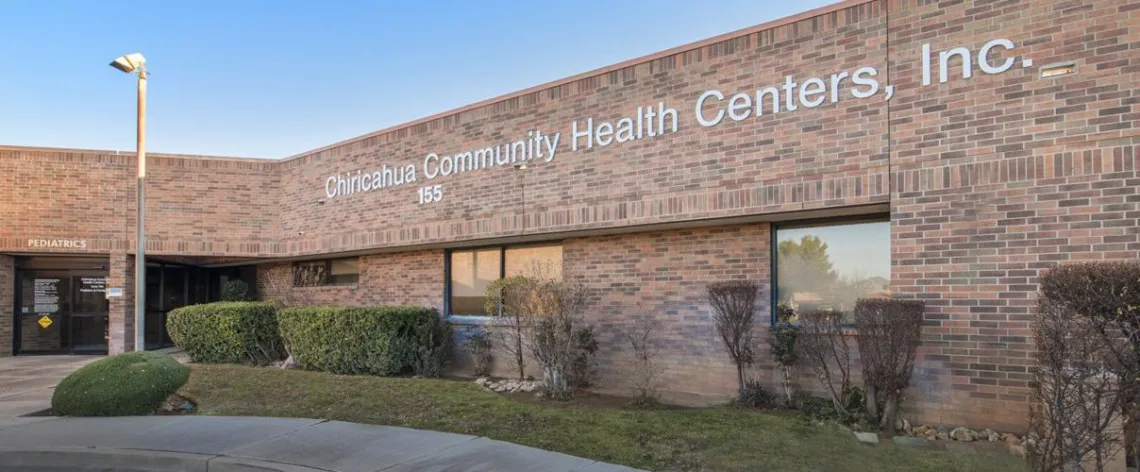Rural health care a focus of Sinema's Chiricahua Community Health Centers visit

This article was originally published on the Herald Review
SIERRA VISTA - On Wednesday, Sen. Kyrsten Sinema, I-AZ, visited the Chiricahua Community Health Centers in Sierra Vista for a meeting that highlighted the capabilities and hurdles of rural health care.
Sinema received a tour of the location after Chiricahua staff explained the goals and the difficulties involved rural health care. CEO Jonathan Melk told Sinema how the Chiricahua Community Health Center's role as a Federally Qualified Health Center for the area makes its work essential, and stressed that health care access for rural areas is needed.
“One of the fundamental beliefs that guides us is that, no, it should not mean we live a shorter life if we live a rural life,” Melk said. “Right now, if you live and grow up in Cochise County, and don’t leave Cochise County, you will likely live a shorter life than your urban counterparts.”
Chiricahua staff explained some of the programs it has implemented to try to increase health care access in the county, including offering vaccines to people who come for the clinic's dental program. They thanked Sinema for her support of federal health care funding, and urged cooperation in providing health care access.
After her tour, Sinema reiterated her worry about rural health care's availability.
“Rural health care is always a concern in our country because it is sometimes higher cost to provide services to people who, of course, are more disparately spread apart,” she said.
Simena explained the decreased life expectancy in rural areas is largely due to decreased care. She praised Chiricahua for its coverage of the entire county.
“There's 10 facilities, in the county, of Chiricahua Community Health Center, and there are eight mobile units, which is just incredible,” said Sinema. “Twenty years ago, such a thing did not exist in rural Arizona. So this is really good news because this growth is really phenomenal. There's still much more to do, obviously. We have to continue to secure federal funding to support and continue these programs.”
She explained the status of federal funding efforts for health centers like Chiricahua.
“I'm very happy to report that in the most recent Senate-passed legislation regarding health care, we provided a very generous set of funding for Federally Qualified Health Centers,” Sinema said. “The House has also proposed funding for Federally Qualified Health Centers, and in the next several weeks, it is our hope to pass a federal budget, hopefully, that actually fully funds these centers.
"I was recently appointed to the Senate Appropriations Committee. So now I have an even greater ability to fight for this funding.”
The impact of COVID-19 four years ago, Sinema said, caused some major changes in how health care is administrated that benefited rural areas. In particular, the increase of mobile health care, including dental and pharmaceutical services, improved.
“That really grew during the time of COVID, because people were not able to come into facilities as frequently,” she said. “So they've continued even after COVID, which is great.”
Sinema touched on Chiricahua's work in the field of behavioral health, praising its efforts to destigmatize this kind of treatment and make it seen as more akin to physical care. She noted that her background in social work makes this a personally important issue.
“Rural communities have long not had access, or adequate access, to mental health care, behavioral health care,” she said. “What we've seen here at Chiricahua, is back in 2015, one mental health professional, and now a staff of 36 for the county. Now, 36 is still not enough for an entire county, to be clear, but to see that kind of growth over the space of just eight and a half years is phenomenal.
“What I think is really important about what Chiricahua has done is integrate behavioral health into the physical health care system to reduce stigma and to normalize the practice of getting access to behavioral health care while you're getting physical health care. I think many young Americans understand that taking care of your brain and your emotions is just as important as taking care of your body, but as we know, for many years, it's been an issue around stigma in our country.”

